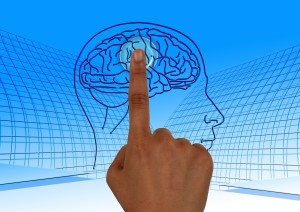- Calls to this hotline are currently being directed to Within Health, Fay or Eating Disorder Solutions
- Representatives are standing by 24/7 to help answer your questions
- All calls are confidential and HIPAA compliant
- There is no obligation or cost to call
- Eating Disorder Hope does not receive any commissions or fees dependent upon which provider you select
- Additional treatment providers are located on our directory or samhsa.gov
Research on Binge Eating Disorder and Appetite Regulation

Contributor: Crystal Karges, MS, RDN, IBCLC, Director of Content and Social Media at Eating Disorder Hope
Description: Binge eating disorder is influenced by several biological factors many that influence appetite regulation. Learn more about what research shows.
For an individual dealing with binge eating disorder, there are many problematic issues at hand that should be addressed. Perhaps one of the greatest struggles is in facing the stigmas that surround this challenging mental illness.
Many people wrongly assume that binge eating disorder has more to do with lack of self-control or generalize this illness as laziness or poor self-esteem.
The Reality of Binge Eating Disorder
The truth of the matter is that binge eating disorder is a psychiatric illness that is influenced by a variety of factors, many which are not in a person’s control or choosing.
This includes biological factors that may involve genetics, hormonal influences, and neurobiology, all which can contribute to an overwhelmingly strong drive to engage in behaviors related to binge eating disorder.
Research has also demonstrated that the presence and combination of other factors also contribute to the development and maintenance of binge eating disorder, including environmental conditioning, stress, restricting overall caloric intake, and the presence of palatable foods [1].
The Role of Neurochemicals in Appetite Regulation
Binge eating disorder is characterized by the excessive consumption of food within a short time period, often marked by a loss of control. What factors might drive a person to eating large amounts of food, even when not feeling physically hungry?
Research has also helped identify other possible predictors of binge eating disorder, such as neurochemical imbalances, which may help explain greater food intake.
The hormone Ghrelin, which is produced mainly in the gastrointestinal tract, plays a significant role in energy homeostasis, food intake, and appetite regulation. Ghrelin has been the focus of much eating disorder research, as it is one of the key gut signals that contribute to appetite [2].
In relation to binge eating disorder, research has uncovered that higher levels of ghrelin may be associated with increased food intake, decreased fuel utilization, and consequent weight gain in an individual with binge eating disorder [2].
 While research is continuing to understand a more definite picture of the possible biological factors that influence binge eating disorder, these findings solidify the basis that eating disorders are not purely psychological and include the interaction of both genetic and environmental factors [2].
While research is continuing to understand a more definite picture of the possible biological factors that influence binge eating disorder, these findings solidify the basis that eating disorders are not purely psychological and include the interaction of both genetic and environmental factors [2].
This is observed in the possible role of altered levels of ghrelin in the body, which may contribute to an inability to regulate appetite and metabolic alterations. These findings bring greater light into factors that may drive a person to binge eat, even when satiated and not experiencing physical hunger.
Getting the Help You Need
If you or someone you love has been struggling with binge eating disorder, it is important to know that professional and comprehensive help is available for recovery. Because this illness is complex and involves both environmental and biological factors, professional assistance should be sought for recovery and healing.
Equally important, know that your struggle is not due to lack of control or self-will on your part, and that there is no shame in reaching out for the help and support you need to begin your recovery journey.
Community Discussion – Share Your Thoughts Here!
How do you think research on eating disorders can challenge many of the stigmas associated with these mental illnesses?
References:
[1]: Mathes WF, et al. The biology of binge eating. Appetite 2009. Jun; 52(3):545-53. Doi: 10.1016/j.appet.2009.03.005. Epub 2009 Mar 20. [2]: Deniz Atalayer, et al. Ghrelin and Eating Disorders. Prog Neuropsychopharmacol Biol Psychiatry. 2013 Jan 10; 40: 70-82. Published online 2012 Aug 30, doi: 10.1016/j.pnpbp.2012.08.011
About the Author: Crystal is a Masters-level Registered Dietitian Nutritionist (RDN) with a specialty focus in eating disorders, maternal/child health and wellness, and intuitive eating.
Combining clinical experience with a love of social media and writing, Crystal serves as the Special Projects Coordinator for Eating Disorder Hope/Addiction Hope, where her passion to help others find recovery and healing is integrated into each part of her work.
As a Certified Intuitive Eating Counselor, Crystal has dedicated her career to helping others establish a healthy relationship with food and body through her work with EDH/AH and nutrition private practice.
The opinions and views of our guest contributors are shared to provide a broad perspective of eating disorders. These are not necessarily the views of Eating Disorder Hope, but an effort to offer discussion of various issues by different concerned individuals.
We at Eating Disorder Hope understand that eating disorders result from a combination of environmental and genetic factors. If you or a loved one are suffering from an eating disorder, please know that there is hope for you, and seek immediate professional help.
Last Updated & Reviewed By: Jacquelyn Ekern, MS, LPC on July 14, 2016
Published on EatingDisorderHope.com

The EatingDisorderHope.com editorial team comprises experienced writers, editors, and medical reviewers specializing in eating disorders, treatment, and mental and behavioral health.

